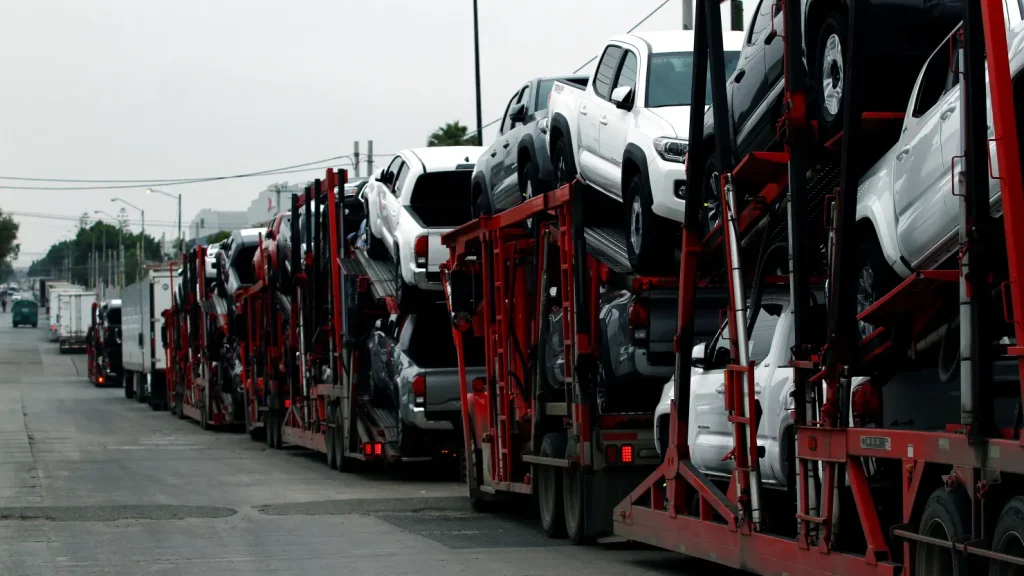Summary
- Automaker shares dropped on Tuesday following President-elect Donald Trump’s threat to impose a 25% tariff on goods from Mexico and Canada.
- Companies such as General Motors and Stellantis have significant manufacturing operations in both Mexico and Canada.
- Trump had been expected to renegotiate the regional trade deal from his first term.
Shares of automakers General Motors and Stellantis fell Tuesday morning after President-elect Donald Trump threatened to impose a 25% tariff on goods imported from Canada and Mexico into the U.S.
These tariffs would significantly impact the global automotive industry, which has relied on Mexico, in particular, for lower-cost vehicle production since the North American Free Trade Agreement (NAFTA) took effect in 1994.
UBS reports that the automotive industry accounts for 26% of imports from Mexico to the U.S., including vehicles and parts, and 12% from Canada.
Nearly every major automaker operating in the U.S. has factories in Mexico. However, GM and Stellantis produce highly profitable full-size pickup trucks in the country.
Shares of GM, which has five large assembly plants in Mexico and Canada that Barclays estimates will produce 1 million vehicles this year, dropped more than 8% during midday trading Tuesday.

Stellantis, the parent company of Chrysler, which operates four major plants in Canada and Mexico, saw its shares drop by more than 5%. Ford Motor, which has less exposure to these countries, saw a smaller decline of 2%. Shares of Toyota Motor, Honda Motor, and other automakers with production in Mexico also fell by at least 1%.
Trump announced that he plans to impose a 25% tariff on all U.S. imports from Canada and Mexico through an executive order when he is inaugurated on January 20. He also revealed plans to raise tariffs by an additional 10% on all Chinese goods entering the U.S.
These tariffs would be more aggressive than the renegotiation of the United States-Mexico-Canada Agreement (USMCA) that Trump had previously planned. The renegotiation was intended to replace the North American Free Trade Agreement (NAFTA), but such a move would effectively end the regional free trade deal.
Spokespeople for GM and Stellantis declined to comment on the potential tariffs Tuesday. The American Automotive Policy Council, which lobbies on behalf of GM, Stellantis, and Ford, did not immediately respond for comment.
Wall Street analysts viewed Trump’s announced tariff plans as a strategic move to create leverage in upcoming negotiations with the countries involved.
BofA Securities’ Carlos Capistran explained in a Tuesday note, “We believe Trump will use the threat of tariffs to extract the economic and political outcomes he considers best for America.” He added, “We expect Canada and Mexico to show a willingness to negotiate on these issues to avoid tariffs.”
Dan Levy from Barclays agreed in an investor note Monday night, stating, “We view [the] announcement as largely negotiation tactics (as seen in 2016) and believe such a magnitude of tariffs is unlikely.”
Both Trump and Democrats have expressed the need to change the trade deal to address potential plans involving Chinese manufacturers like BYD.
During his campaign, Trump proposed several tariff measures, including imposing a more than 200% duty on imported vehicles from Mexico. He has also threatened to increase tariffs on European vehicles, as he did during his first term in office.

